Resources
Site visits provide an irreplaceable learning experience to students in both religious studies and the emerging field of interfaith studies. The conceptual core of this thesis is the claim, drawn from feminist epistemology, that an embodied pedagogy – a pedagogy which engages students not only intellectually, but as embodied beings who inhabit a space, engage in physical activities, and undergo various sensory experiences – is ultimately more enriching than a pedagogy centered exclusively in the classroom. Factors that make a site visit a successful instance of embodied pedagogy include the provision of sufficient context to students in advance for them to understand and appreciate the experience, an opportunity afterward to reflect on this experience in an intentional way, ensuring the site and the community whose space it is are treated with proper respect, and ensuring that the religious sensibilities of one's students are also similarly respected.
One page Teaching Tactic: helping students to develop tools for countering violence, in a course taught in a women's prison
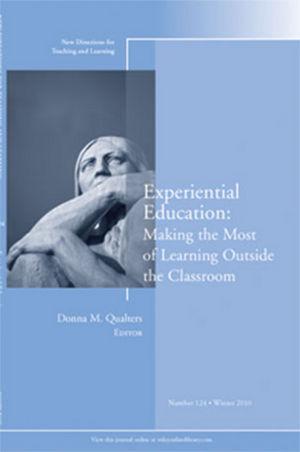
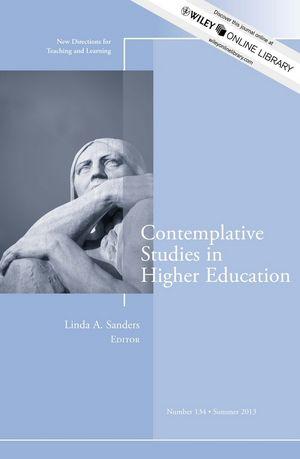
The complexities of 21st-century life- personal, social, cultural, and environmental - demand thoughtful responses, responses fostered and enhanced through contemplative experience. Contemplative education includes studies of the history, psychology, and socialcultural context of such experience, as well as the development of experiential knowledge through one or more personal practices. Contemplative education has recently emerged in the academy. Although there has been significant published discussion of postsecondary courses and programs that incorporate contemplative views and practices, there have been few studies of relevant curricula and pedagogy. This volume integrates research, theory, and practice through a fusion of perspectives and approaches, giving readers the opportunity to review contemplative educational concepts and applications in academic, social, and institutional domains. This is the 134th volume of this Jossey-Bass higher education series. New Directions for Teaching and Learning offers a comprehensive range of ideas and techniques for improving college teaching based on the experience of seasoned instructors and the latest findings of educational and psychological researchers. (From the Publisher)
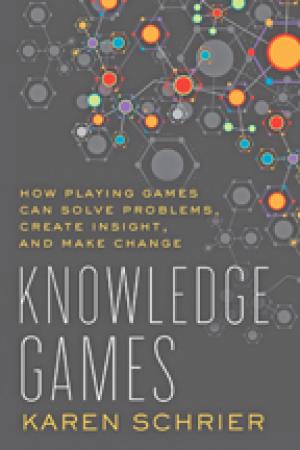
Click Here for Book Review Abstract: Imagine if new knowledge and insights came not just from research centers, think tanks, and universities but also from games, of all things. Video games have been viewed as causing social problems, but what if they actually helped solve them? This question drives Karen Schrier’s Knowledge Games, which seeks to uncover the potentials and pitfalls of using games to make discoveries, solve real-world problems, and better understand our world. For example, so-called knowledge games --such as Foldit, a protein-folding puzzle game, SchoolLife, which crowdsources bullying interventions, and Reverse the Odds, in which mobile game players analyze breast cancer data ---are already being used by researchers to gain scientific, psychological, and humanistic insights. Schrier argues that knowledge games are potentially powerful because of their ability to motivate a crowd of problem solvers within a dynamic system while also tapping into the innovative data processing and computational abilities of games. In the near future, Schrier asserts, knowledge games may be created to understand and predict voting behavior, climate concerns, historical perspectives, online harassment, susceptibility to depression, or optimal advertising strategies, among other things. In addition to investigating the intersection of games, problem solving, and crowdsourcing, Schrier examines what happens when knowledge emerges from games and game players rather than scientists, professionals, and researchers. This accessible book also critiques the limits and implications of games and considers how they may redefine what it means to produce knowledge, to play, to educate, and to be a citizen. (From the Publisher)
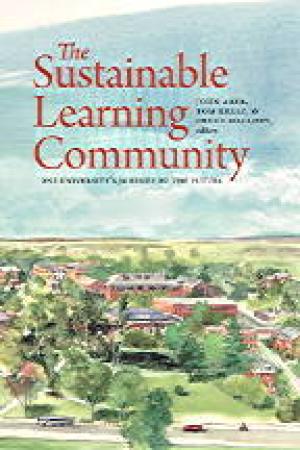
University communities have the potential to serve as models in the development and application of sustainability principles and practices, not only by what they teach and study, but also by how they operate facilities and engage with off-campus partners. With the oldest endowed campus-wide sustainability program in the country, established in 1997, the University of New Hampshire has become a leader in advancing a campus culture of sustainability. The UNH experience provides a unique window into the development of a new and integrated approach to teaching, learning, research, and operations. It is also a valuable guide for other institutions that aim to enhance the quality of campus life while reducing their environmental footprint. The book’s organization along four functional domains (curriculum, operations, research, and engagement) allows faculty, staff, students, and managers to focus on sections of particular relevance to their university roles. Each chapter develops standards of best practices and presents interesting case studies to humanize the larger effort. (From the Publisher)
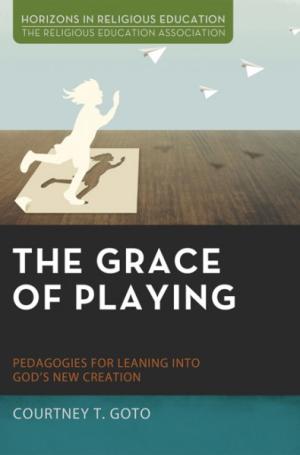
Click Here for Book Review Abstract: Believers and teachers of faith regularly know the in-breaking of God's Spirit in their midst, when revelatory experiencing unexpectedly shifts habits of thinking, feeling, and doing toward more life-giving ways of being and becoming. When the moment is right, Spirit breathes new life into dry bones. Though religious educators have much practical wisdom about facilitating learning that is creative and transformative, sharper concepts, cases, and theory can help them do it more critically and assist learners to practice openness to wonder, surprise, and authenticity. The Grace of Playing explains how we can create the conditions for revelatory experiencing by understanding it in light of playing. The notion of playing "as if" can be powerfully reclaimed from ecclesial ambivalence, casual speech, and commercial interests that often lead playing to be associated with childishness, frivolity, or entertainment. This book theorizes adults playing for the sake of faith, drawing on D. W. Winnicott's psychoanalytic theory, a revision of Jurgen Moltmann's theology of play, biblical texts, medieval devotional practices, as well as art and aesthetics that help local faith communities engage in theological reflection. Communal forms of playing in/at God's new creation provide insights into pedagogies in which learners are creating and are created anew. (From the Publisher)
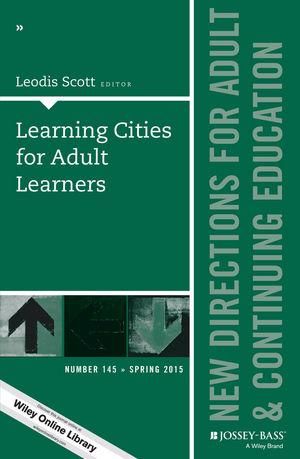
Click Here for Book Review Abstract: Learning cities call for a connection of adult education to elementary, secondary, and postsecondary institutions along with vocational and corporate workspaces. This volume considers how “learning cities for adult learners” could be created in America that promote lifelong learning and education. Encouraging a widespread approach to educate and learn across disciplines, within communities, and inside the minds of all people, topics covered include: • workplace and organizational learning, • community engagement and service learning, • public libraries and cooperative extension, and • leisure, recreation, and public health education. This is the 145th volume of the Jossey Bass series New Directions for Adult and Continuing Education. Noted for its depth of coverage, it explores issues of common interest to instructors, administrators, counselors, and policymakers in a broad range of education settings, such as colleges and universities, extension programs, businesses, libraries, and museums. (From the Publisher)
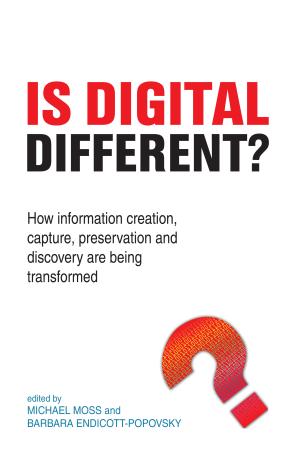
This edited collection brings together global experts to explore the role of information professionals in the transition from an analogue to a digital environment. The contributors, including David Nicholas, Valerie Johnson, Tim Gollins and Scott David, focus on the opportunities and challenges afforded by this new environment that is transforming the information landscape in ways that were scarcely imaginable a decade ago and is challenging the very existence of the traditional library and archive as more and more resources become available on line and as computers and supporting networks become more and more powerful. By drawing on examples of the impact of other new and emerging technologies on the information sciences in the past, the book emphasises that information systems have always been shaped by available technologies that have transformed the creation, capture, preservation and discovery of content.  Key topics covered include: • Search in the digital environment • RDF and the semantic web • Crowd sourcing and engagement between institutions and individuals • Development of information management systems • Security: managing online risk • Long term curation and preservation • Rights and the Commons • Finding archived records in the digital age. Is Digital Different? illustrates the ways in which the digital environment has the potential to transform scholarship and break down barriers between the academy and the wider community, and draws out both the inherent challenges and the opportunities for information professionals globally. (From the Publisher)
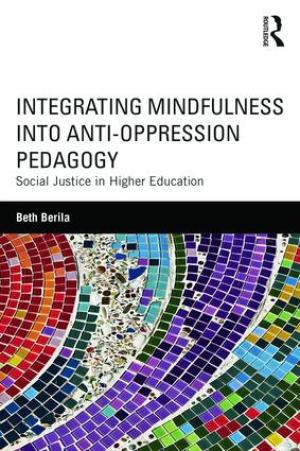
Click Here for Book Review Abstract: Drawing from mindfulness education and social justice teaching, this bookexplores an anti-oppressive pedagogy for university and college classrooms. Authentic classroom discussions about oppression and diversity can be difficult; a mindful approach allows students to explore their experiences with compassion and to engage in critical inquiry to confront their deeply held beliefs and value systems. This engaging book is full of practical tips for deepening learning, addressing challenging situations, and providing mindfulness practices in anti-oppression classrooms. Integrating Mindfulness into Anti-Oppression Pedagogy is for all higher education professionals interested in pedagogy that empowers and engages students in the complex unlearning of oppression. (From the Publisher)